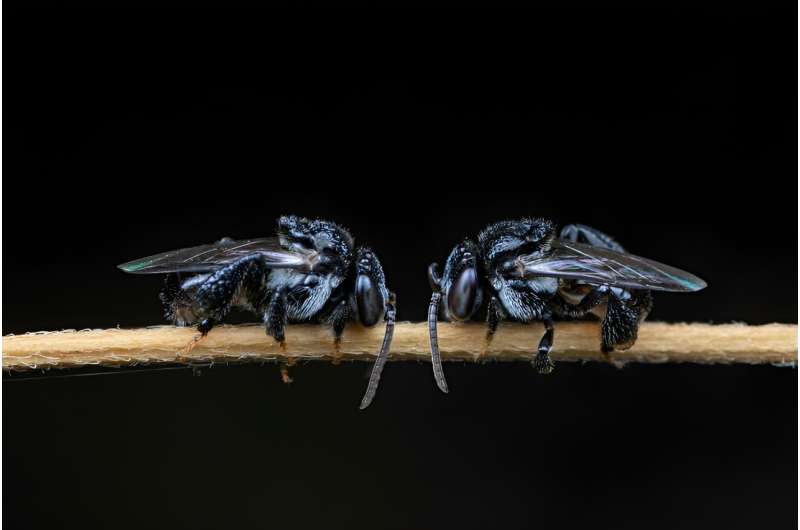This article has been reviewed according to Science X's editorial process and policies. Editors have highlighted the following attributes while ensuring the content's credibility:
fact-checked
peer-reviewed publication
trusted source
proofread
Northern bees at risk from insecticide

James Cook University scientists say a common tropical bee species is vulnerable to widely-used insecticides—which will decrease their heat tolerance at the same time as the climate is warming.
JCU Ph.D. candidate Holly Farnan led the study, published today in the journal Royal Society Open Science. She said bees are critical components of natural and agricultural ecosystems and concern is growing about declines in their populations.
"These declines are likely driven by a myriad of stressors including habitat loss, pathogens and parasites, competition from introduced species, poor nutrition and insecticide exposure," said Ms Farnan.
She said the research focused on Tetragonula hockingsi, a small stingless bee that lives in the tropics and subtropics of Queensland and the Northern Territory and is a pollinator of both native plants and crops including mangos and lychees.
The scientists tested the bees' response to common insecticides and heat stress.
"Effects of insecticides could be reduced if bees avoided foraging on flowers contaminated with insecticides. However, our work revealed no consistent avoidance of the insecticides by the bees. We also found the bees had diminished tolerance of heat stress after non-lethal exposure to the insecticides," said Ms Farnan.
"Even bees exposed to minuscule amounts of insecticide, certainly not enough to kill them, were more susceptible to the effects of heat."
She said climate projections suggest global warming of less than 1°C will cause tropical regions to experience extreme conditions sooner than other regions of the globe.
"The combination of heat stress and insecticide exposure may put this stingless bee at increased risk of decline," said Ms Farnan.
More information: Holly Farnan et al, Sublethal doses of insecticide reduce thermal tolerance of a stingless bee and are not avoided in a resource choice test, Royal Society Open Science (2023). DOI: 10.1098/rsos.230949
Journal information: Royal Society Open Science
Provided by James Cook University





















